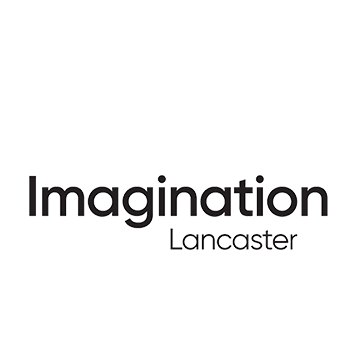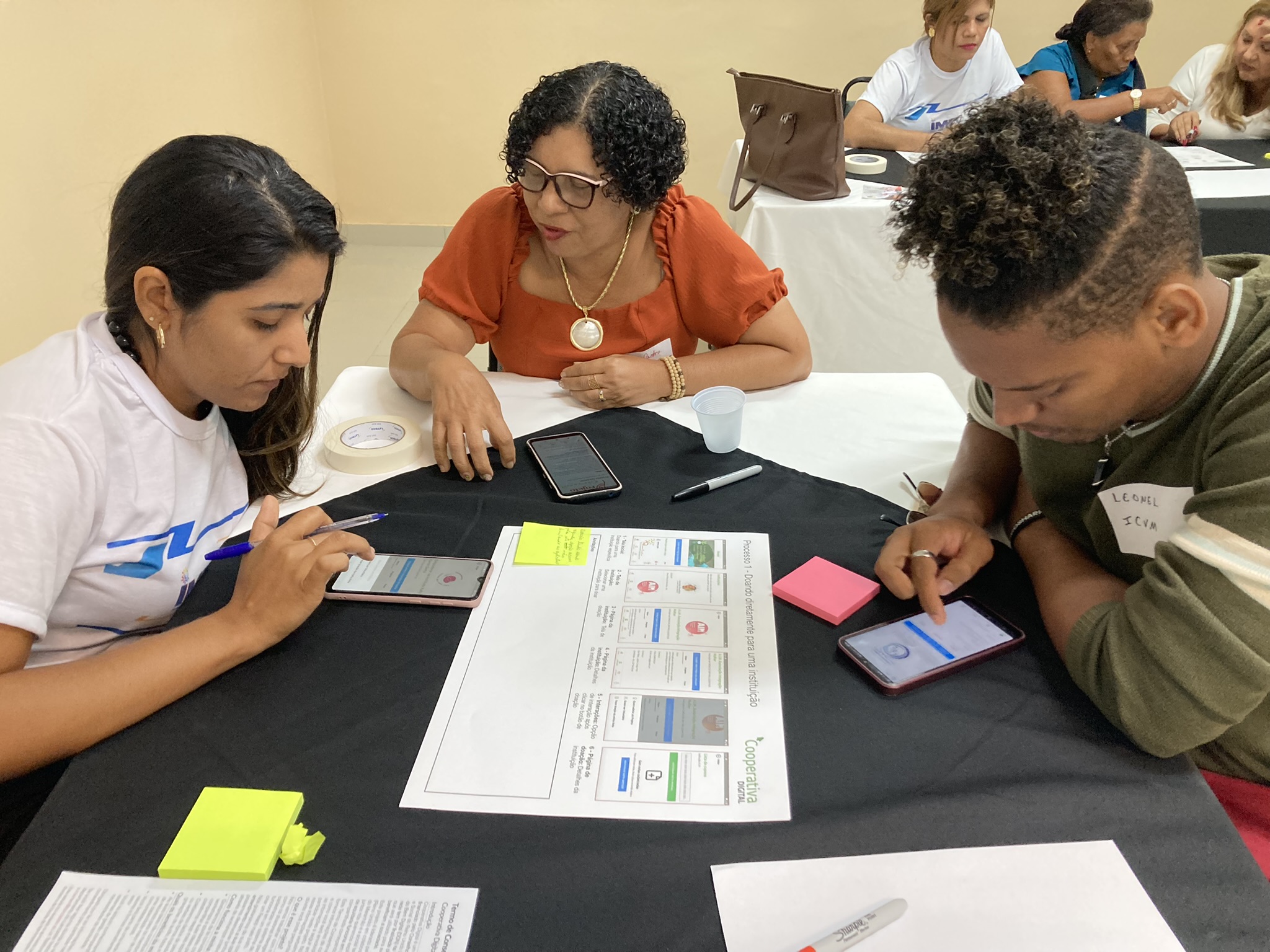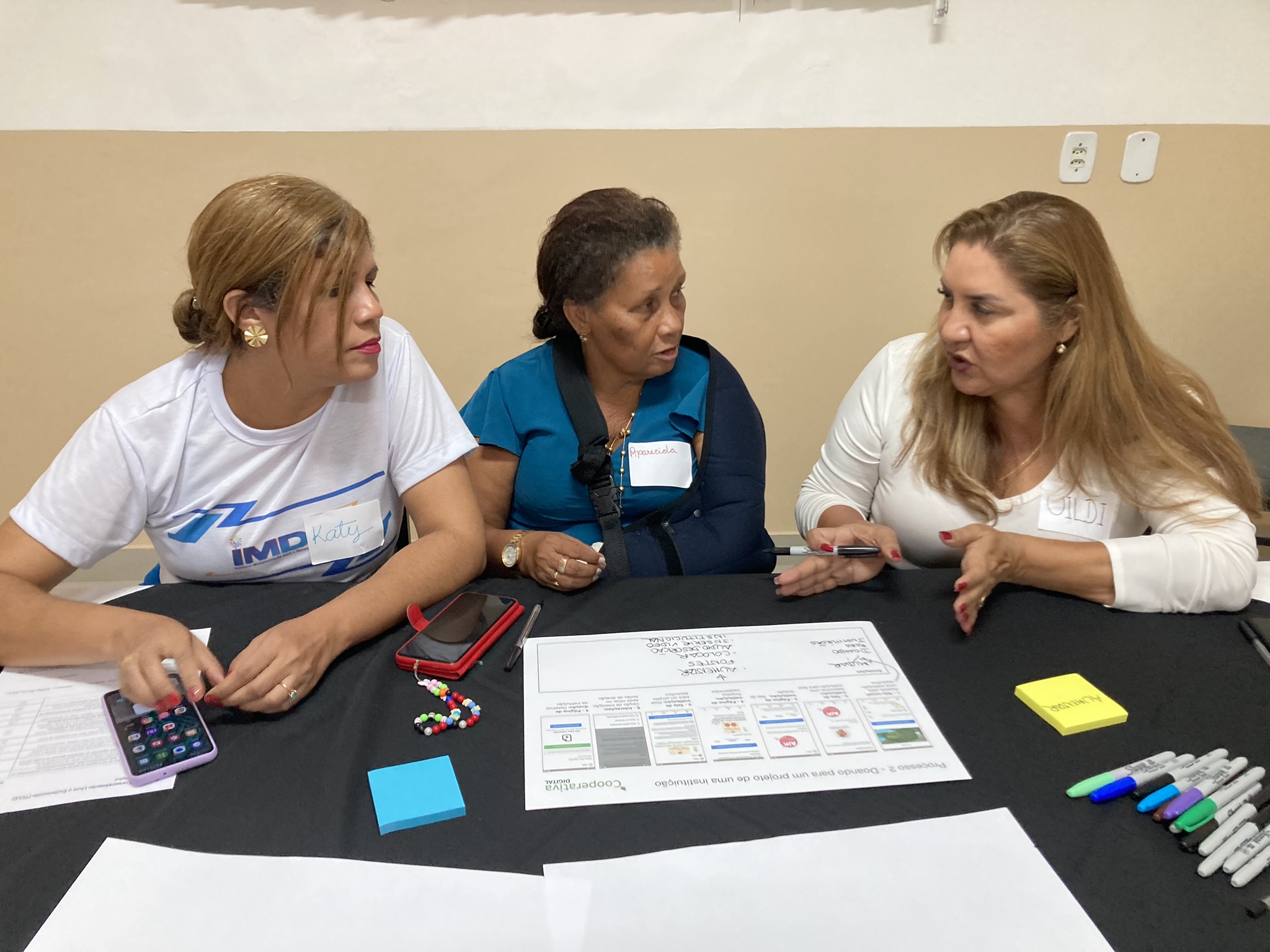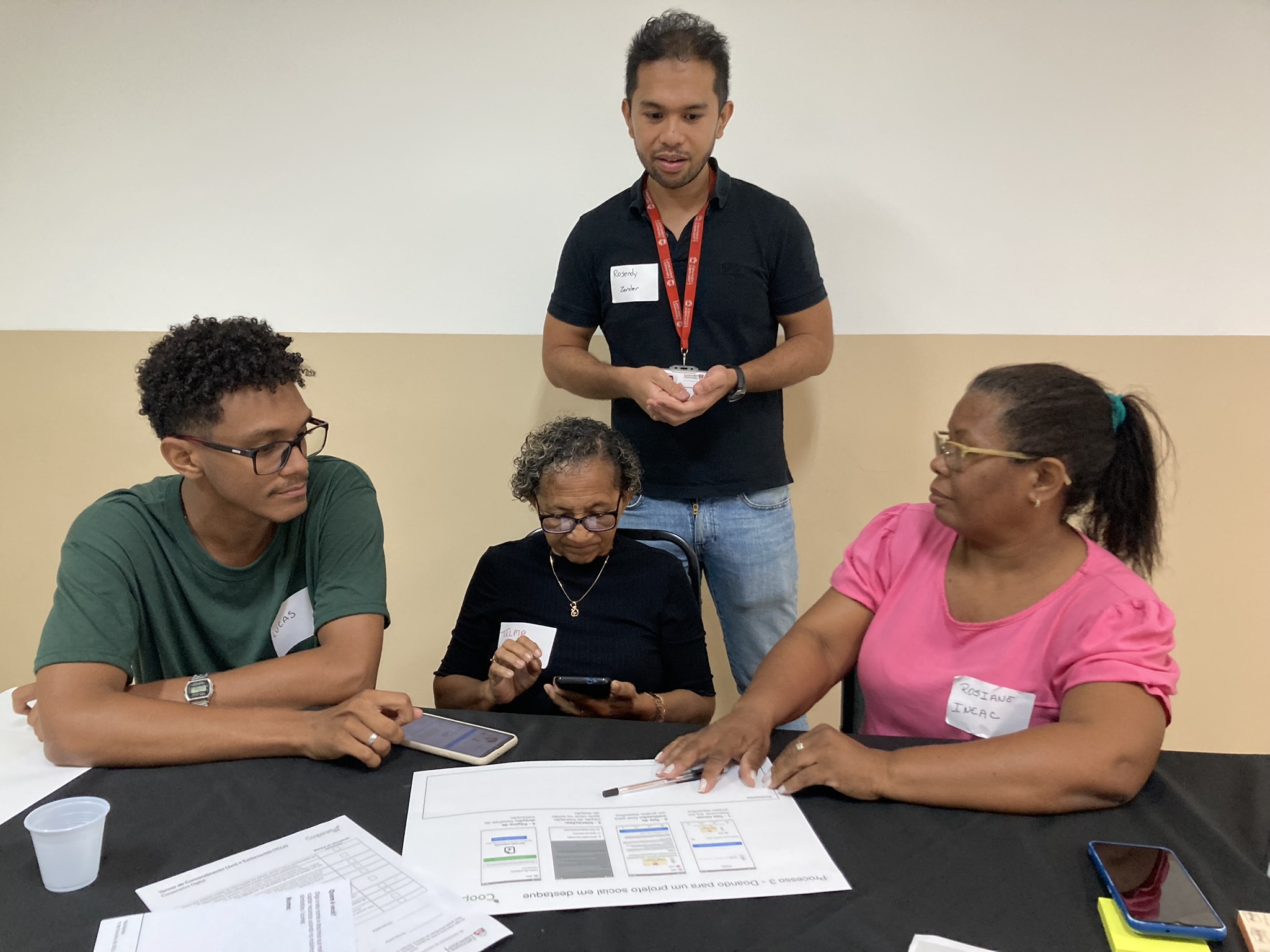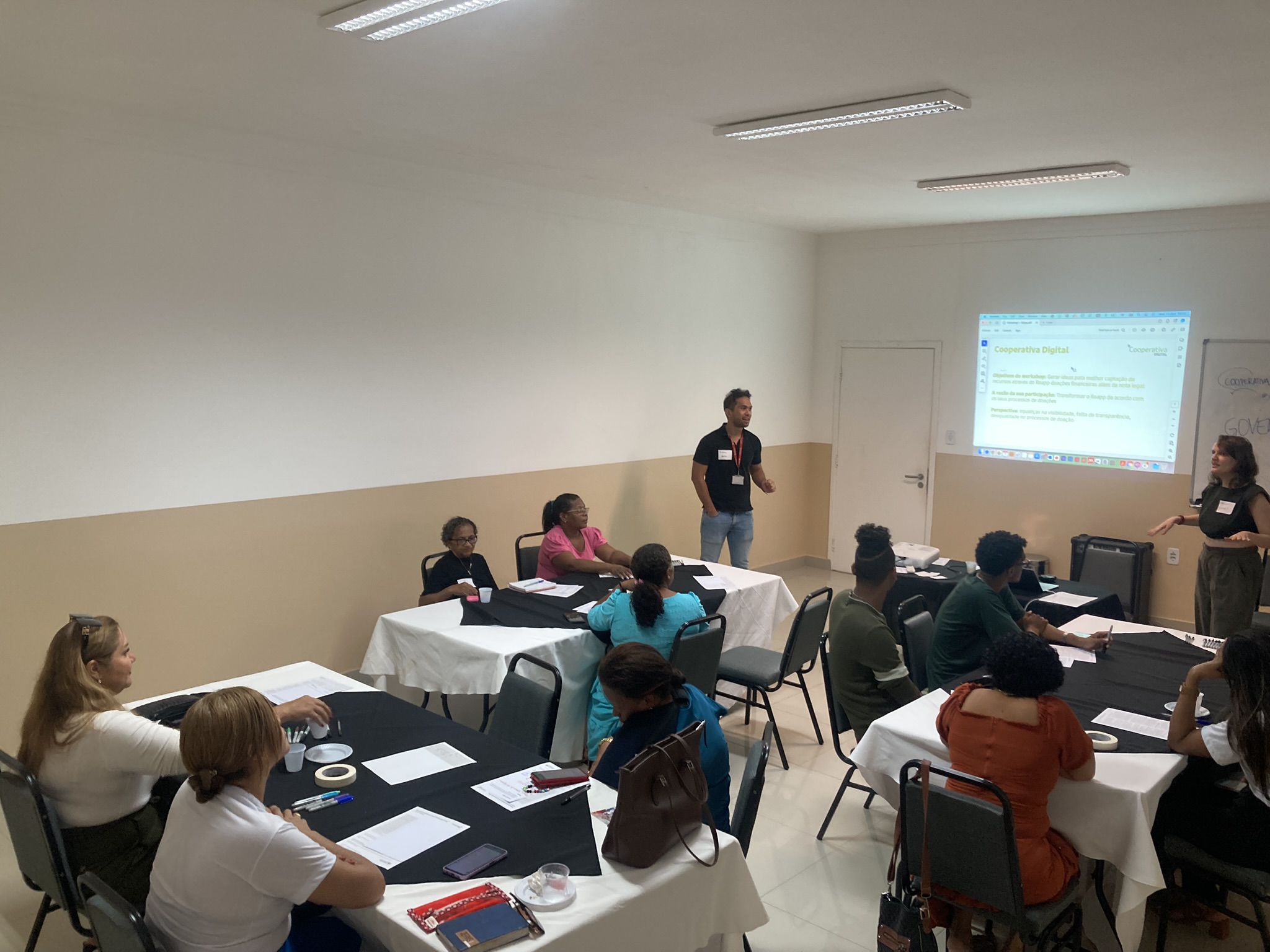The ‘Cooperativa Digital’ research team, consisting of Rosendy Galabo, Marcella Abreu, and Reapp Director Jovemar Junior, held the first workshop to 9 participants from 7 different NGOs on October 11th at Orienta Consultoria.
Our informal visits to two NGOs before the workshop provided support to initiate a relationship and understand what their interests are. These visits enabled us to design tailored activities, presentation slides, and proformas that were used for generating materials that tell, describe, and provide a story as a source of evidence. We planned three workshops, where the first one involved improving Reapp to make it useful for the group of NGOs and the other two workshops involved creating the governance of the new improved Reapp.
At the beginning of workshop 1, we gave a brief presentation about the project overview, including objectives, consent information, and transparency about Jovemar’s voluntary role. The main objective was to collaboratively generate ideas for enhancing NGO fundraising through Reapp. We encouraged participants to critique the existing app and envision a new design that aligns better with their real-world fundraising experiences. Additionally, we initiated discussions on matching donors with NGOs beyond “Nota Legal” through improved algorithms.
The workshop began with an icebreaker activity to encourage participants to engage and reflect on their fundraising processes. Following this, we introduced the current Reapp donation system using videos and step-by-step visual guides for mobile app use. Participants were invited to analyse their fundraising experiences, identify areas for improvement, and propose app enhancements. The key insight from this activity is that participants connected to the Wi-Fi to download the existing mobile app and understand how it works in practice because might not have fully grasped the functionality from static visuals. Another insight was the limited effectiveness of printed cards that we provided to participants to encourage them to propose new features. At the end of the workshop, we asked each group to present their ideas and discuss which proposals should be implemented in the new Reapp.
As a result of this workshop, participants generated interesting ideas for the new Reapp, such as the possibility of donating appliances or valuable materials that could be sold to generate income for NGO members, and also algorithm designs about how they should organise their institutions and social projects to match up with donators. The interesting thing is to see that the quality of their designs was similar to what we envisioned the new interface would look like. When preparing the materials for the workshop, we drafted what the new Reapp would look like, which was very similar to the final outputs produced by the NGOs in this workshop. Some other platforms allow the donation of materials because people in Brazil don’t trust social institutions in Brazil and would rather donate goods Instead of money. For instance, if it is an institution for children, they would rather donate stationery or clothes rather than money.
The workshop yielded two key takeaways: interesting in-kind donation ideas, like appliances for income generation, and the participant-generated algorithm design concepts for improved donator-NGO matching.
For the next workshop, we will enable participants to decide on the properties of the new algorithm designs, such as how many words each institution can use and which words should be used, by testing the new algorithm designs on a functional prototype to generate rules to avoid the ‘tragedy of commons’ (overexploitation of the shared resource) that could undermine the future of this digital platform.
